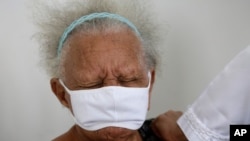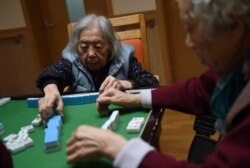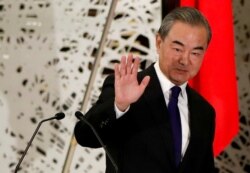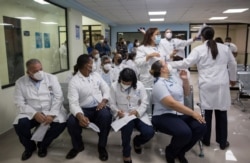As China sends millions of coronavirus vaccine doses to countries it hopes to influence, citizens at home who are over 60 are asking “What about me?”
Their question spotlights Beijing policy divergence from many Western nations, where the public health push focuses on immunizing as many older adults as soon as possible because they are more likely to become sicker and require hospitalization than younger people.
Instead, China is focusing on immunizing people aged 18-59 who are at high risk and highly likely to spread the virus, said Wang Bin, China's National Health and Health Commission official on February 13.
And some provincial governments are not administering vaccines to seniors due to safety concerns, saying few older people have been included in clinical trial.
Another factor may be that China has largely contained the spread of new cases of domestic transmission. While protocols in China are similar to those in the U.S. and elsewhere, the government has devised a system of color-coded health status updates shown via cellphone. Combined with frequent temperature checks, widespread testing and nearly universal mask wearing, "they have done an amazing job of controlling the virus," Ali Mokdad, a professor of global health at the University of Washington and a former official with the international health program at the Centers for Disease Control and Prevention told NBC News.
Nonetheless, the over-60 cohort worries.
Wang, a retired doctor in Hebei province who did not want his full name and age used due to fear of government reprisal, told VOA, “The elderly should be among the vulnerable, sick and disabled who are first to get vaccinated. It is common sense. The government said the trials haven’t been done among people over 60 years old, but I don’t think it really makes sense.”
A study published by BMC Medicine shows that individuals age 60 years and older had about a 4-times greater risk of severe or fatal COVID-19 than younger people.
Lin, a retired teacher in Shanxi province, asked that his full name and age be withheld as protection against attracting official attention. He suggested the vaccine policy has less to do with public health than Beijing’s interest in its image.
Chinese Foreign Minister Wang Yi recently told the United Nations that in order to oppose "vaccine nationalism" and clear the "vaccine gap," China has initially decided to provide 10 million new coronavirus vaccines to the World Health Organization.
Many developing countries are counting on Chinese-developed vaccines as affordable and available options, and China’s foreign ministry on February 8 said it will provide them to 53 countries.
China will produce just about enough doses by year’s end to cover 70% of its 1.4 billion people, according to The Washington Post. But instead of keeping all its projected 2 billion doses at home, China has shipped millions of doses to developing nations and pledged hundreds of millions more.
“China is exporting the vaccines to foreign countries more out of concern for the global impact this would make,” Lin, the retired teacher, told VOA Mandarin. “I think, by doing so, China wants to alleviate international accusations against China.” The coronavirus was likely spreading unnoticed in Wuhan, China, in November 2019 before doctors began reporting cases a month later.
“Of course, it also wants to win over countries that already have good relations with China and to bring them closer,” said Lin.
China will donate coronavirus vaccines to three African countries and plans to “assist” another 38 developing countries with shots in the future, according to Bloomberg, quoting the Chinese embassy in Kenya.
China is also ready to consider “vaccine cooperation” with Central and Eastern European countries, according to Xinhua, China’s state-run news agency. Serbia has already received 1 million doses of a Chinese-developed coronavirus vaccine while Hungarian and Chinese vaccine developers are cooperating.
Some of the countries that have received Chinese-developed vaccines are inoculating medical personnel first, followed by citizens who are 60 and older. In Peru, the elderly are the group that is second in line after frontline medical workers for a vaccine developed by Chinese company Sinopharm, according to China Daily, a Chinese government-run newspaper. Third in line are people between the ages of 18 and 59.
In the Dominican Republic, people who are 60 and above are among the first to receive the vaccines, according to Xinhua.
Sun, a Tianjin city resident who wanted only one name used for safety, said some elderly people are very anxious because they don’t know when it’s their turn.
“Why don’t they administer the vaccines for the elderly and frail? Why young people first?” she asked.
Lin gave VOA what he thinks is the real reason. "When the pandemic is over, if the international community is really holding China accountable for causing the pandemic, China will say that it has assisted this country and that country. … China does not admit that the pandemic originated from China, but after all, it originated from Wuhan. China has a guilty conscience."








